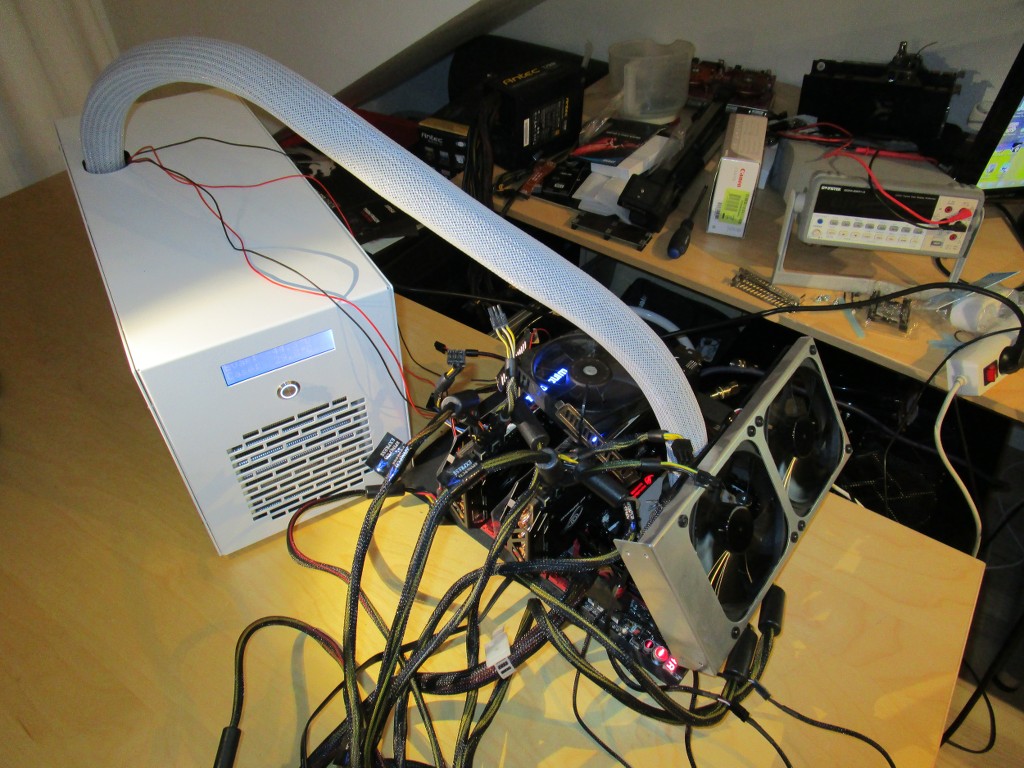- Joined
- May 24, 2007
- Messages
- 1,153 (0.18/day)
- Location
- Florida
| System Name | Blackwidow/ |
|---|---|
| Processor | Ryzen 5950x / Threadripper 3960x |
| Motherboard | Asus x570 Crosshair viii impact/ Asus Zenith ii Extreme |
| Cooling | Ek 240Aio/Custom watercooling |
| Memory | 32gb ddr4 3600MHZ Crucial Ballistix / 32gb ddr4 3600MHZ G.Skill TridentZ Royal |
| Video Card(s) | MSI RX 6900xt/ XFX 6800xt |
| Storage | WD SN850 1TB boot / Samsung 970 evo+ 1tb boot, 6tb WD SN750 |
| Display(s) | Sony A80J / Dual LG 27gl850 |
| Case | Cooler Master NR200P/ 011 Dynamic XL |
| Audio Device(s) | On board/ Soundblaster ZXR |
| Power Supply | Corsair SF750w/ Seasonic Prime Titanium 1000w |
| Mouse | Razer Viper Ultimate wireless/ Logitech G Pro X Superlight |
| Keyboard | Logitech G915 TKL/ Logitech G915 Wireless |
| Software | Win 10 Pro |
This platform is definitely more interesting toplay around with on terms of overclocking but certain aspects of overclocking itself can make things so complicated. A slight increase or decrease could mean instability. It's definitely sensitive to some voltage changes, more so than others. As someone stated adding a little vcore helps with increasing memory overclocking stability and messing around with vcca is kinda weird imho. I have had 4.5/4.6 stable for quite sometime now. Now I'm messing around with the cache(uncore) overclocking. It's amazing how much boost is there from overclocking the cache.
Last edited:










 0c idle temps, like around 25c or so. He's got ~30c.
0c idle temps, like around 25c or so. He's got ~30c.





